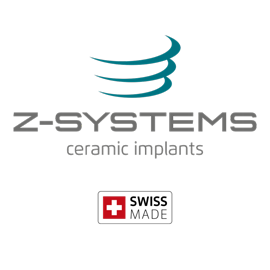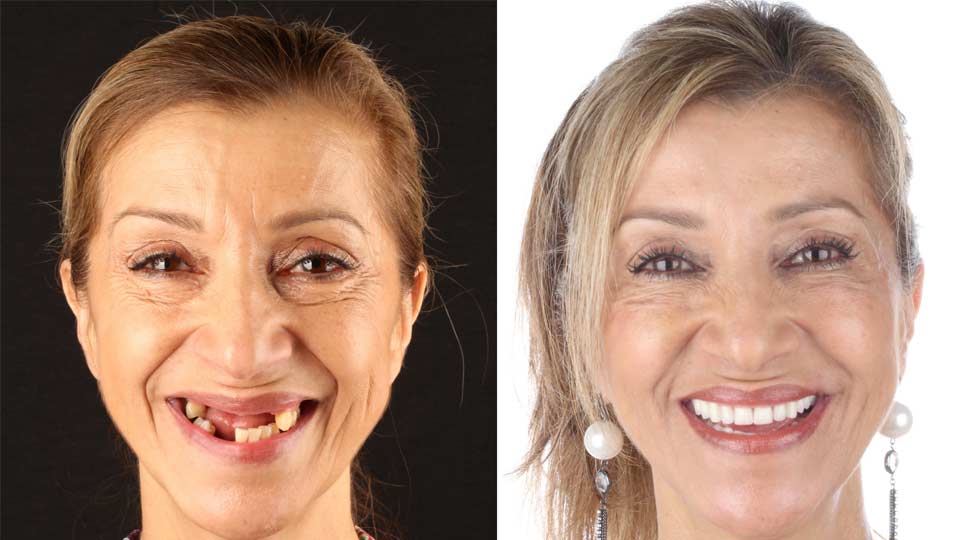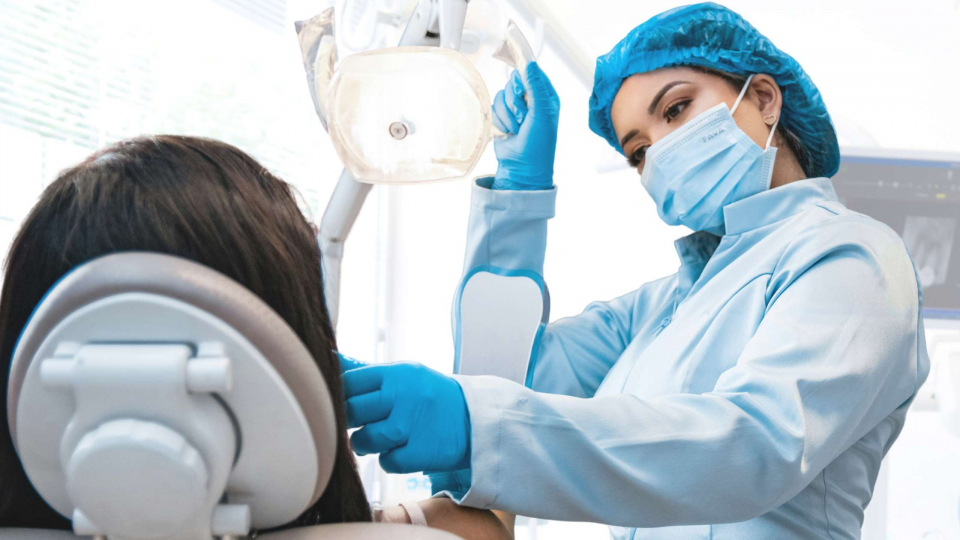Dr. Pentrungaro is surgery director at Start Smiling Chicago Dental Implant Centers. He has successfully placed over 15,000 dental implants and is recognized around the world as an expert in the field of Implantology as well as the treatment of failed or failing implants, zygomatic implants and a Z-SYSTEMS ceramic dental implant expert in Chicago.
Question #1: What are dental implants?
A dental implant is a tooth replacement device that we place into the gum and bone, which acts as a tooth root and a crown can be built on it. It is the most natural way to replace the failing or terminal tooth system.
Question #2: What's the difference between an implant and a bridge?
When we talk about a bridge, you have two teeth on either side of a space. So if you're missing a tooth or teeth, a bridge has to be secured to something. Generally, that support comes from the adjacent teeth that have nothing wrong with them and are prepared down to little stubs. Then they make almost a sleeve that goes over the stubs with a fake tooth in the middle. Depending on the skill of the clinician and the materials used, the bridge could look very good or it could look fake.
A dental implant is totally different. It is a single device. Let's say you're missing a single tooth and the teeth next to that empty space are healthy. The implant would go into that space and act as an artificial tooth root and then a crown that goes on top. So it's going to be free standing, not supported by the other teeth. It looks and acts like a tooth on its own.
Question #3: What is the process for tooth replacement with dental implants?
The best way is called the immediate restoration procedure. Patients can have an immediate temporary tooth with a dental implant. They have the implant placed and a temporary crown made that day that looks just like a natural tooth.
Now when you leave the office, you don’t have something removable you have something fixed to the implant. More importantly, while the implant is healing, so is the gum tissue. So, that when the final crown is made, the gum is very mature and looks very aesthetic.
You're training the tissue and the bone to mimic a natural tooth, and more importantly, it is minimally invasive. It has patients really saying yes to implants a lot more with fewer procedures and better aesthetics.
Question #4: How long do dental implants last?
If there is good control of the implant process, meaning if the implant is placed properly and restored properly, you have set the implant for long-term biologic success. And, of course, the patient takes care of it properly, then implants can last a lifetime.
The success rates of dental implants now are going over 40 years from the original studies from the 80's. Provided the patient does their part in taking care of their implant, that implant can definitely last a lifetime.
Question #5: What happens if I wait to replace a missing tooth?
The largest thing that would happen is that you would lose some of the structure of the bone in the area of the missing tooth. Also, we lose the gum contour and architecture, which sets you up to need a bone grafting procedure. More importantly, when we lose bone and gum from a missing tooth we also start to lose it from the teeth on either side.
Question #6: Are dental implants safe?
Yes. Dental implants are a safe and effective way to replace natural teeth. Far superior to the conventional method of cutting down natural teeth that have nothing wrong them to make a bridge.
Question #7: What are dental implants made out of?
Generally, most implants are made of titanium because it has been considered a safe metal that the body bonds to and has been used for 50 years.
One thing we never thought about with metals in the body is that when metal becomes exposed to bacteria in the oral environment, there are changes that happen that can cause problems.
Over time, just as a tooth can develop plaque and tartar, a dental implant crown can develop plaque and tartar. And even in the cleanest mouths, there are billions of bacteria and our body at 98.7 degrees is the perfect incubator for bacteria growth. Then, you can develop a gum infection.
Around a natural tooth, you can have bone loss and inflammation of the gums and there are procedures to remove that plaque and tarter and save the natural tooth, but when it happens around a titanium implant, we have a bigger problem. That bacteria creates that same bone and tissue loss plus titanium in the mouth can corrode and create even more bone and tissue loss.
Question #8: Are implants made from other materials that are metal-free?
Yes, there is a zirconia material that is now becoming very popular for dental implant designs.
There have been many studies that show over time, zirconia used in certain ceramic dental implant systems is as strong or stronger than titanium and plaque and bacteria accumulation on zirconia is almost non-existent. This is a huge, huge benefit over metal implants.
The other enormous benefit for patients is, of course, the aesthetics.
Depending on what the patient's gum and bone are like, with titanium being a darker metal, there can be a problem for the gum tissue aesthetics around the implant crown. In other words, the front of the mouth that's seen when the patient is smiling can be compromised and a dark color can show through the gum tissue.
With a zirconia implant, the white material doesn't show as a color, so you get the real warm healthy look of gums around a natural tooth.
So, the zero collection of plaque and the natural look of the zirconia implant are the two major reasons zirconia or ceramic dental implants provide an advantage over metal or titanium dental implants.
Question #9: Does it hurt to get a dental implant?
You can have dental implants in today's day and age with zero pain, zero discomfort and no change to your daily lifestyle. The temporary teeth will not be removable and it can be an immediate process.
Question #10: What does an implant tooth feel like in the jawbone?
We have ligaments around natural teeth. A dental implant does not have ligaments. It is fused to the bone, so you do not have proprioception, meaning the ability to feel your teeth when biting. Some say it feels just like a natural tooth and some say it can almost feel a little hollow, but most say it feels great because it doesn't move or hurt.
Question #11: How do I know if I am a candidate for dental implants?
The best way to find out is to see a qualified dental professional that can properly diagnose you. But to be honest with you, with the technology, implant systems, and level of treatment we have today, most everyone looking for tooth replacements are candidates for dental implants.






